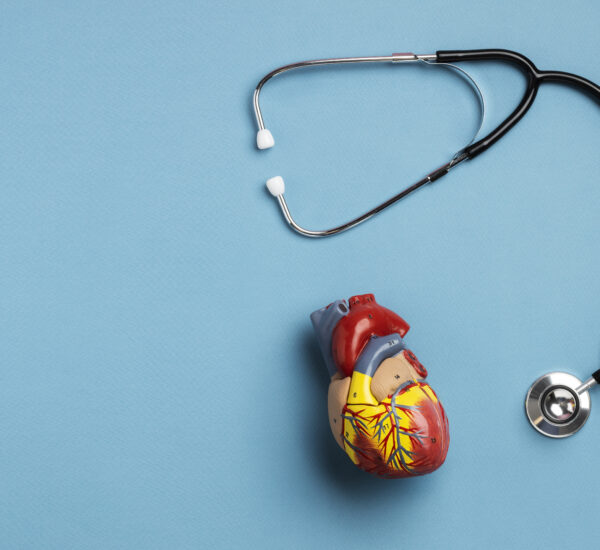Contributed by – Healthians Team
Are your lipid levels high again? Wondering what raises your cholesterol? Well, there are many causes of high cholesterol in a healthy person. It is commonly believed that diet plays an important role in raising your lipid levels. While this may be true in some cases, for many others, lipid levels may be high in spite of a healthy diet. Obese people may have higher cholesterol, but sometimes lean ones too have high lipid levels.
But what causes cholesterol to rise suddenly?
That’s the secret you would be surprised to discover. With this secret unveiled, you can have a healthier plan for yourself.
Know some of the surprising causes of high lipid levels:
Lack of Exercise
Lack of exercise is always known to cause many health problems; high lipid levels is one of them. These days, the nature of jobs, overuse of technology and time constraint has contributed to physical inactivity. Sedentary lifestyle greatly affects your metabolism and raises bad cholesterol. When your metabolism is low, your body is unable to process the food you eat; particularly liver, which is responsible for metabolizing fats. This is one of the most important causes of high cholesterol in a healthy person. It often increases the risk of metabolic disorders, weight gain and other problems too.
Over Exercising
Not exercising was easy to understand, but over-exercising as a cause of high lipid levels definitely raise many eyebrows. Yes, that’s possible! If you exercise for extended periods or more than your capacity, your body experiences excess stress. This can affect your lipid levels and increase bad cholesterol.
Metabolic Disorders
Metabolic disorders affect body metabolism; hence closely related to fat and sugar metabolism. Diabetes, thyroid problems, obesity and other metabolic disorders may affect your lipid levels. Several studies have shown a link between high cholesterol and thyroid under activity. Thyroid hormone is responsible for metabolism but as hypothyroidism or thyroid under activity produces less of this hormone, your metabolism gets affected. This increases the risk of weight gain as well as high lipid levels.
Certain Medications
Some medicines can have a negative impact on the lipid levels. Some hormone replacements, steroids, blood pressure lowering drugs and certain medicines containing vitamin A can affect lipid levels. People who have been taking such medicines for long are at increased risk of high cholesterol.
Genes
You can blame your genes for high lipid levels. If your parents have high cholesterol, you may be at greater risk too. However, in that case, you need to be more careful and keep a check on your health.
Stress
During stress, your body produces more energy, which causes the liver to produce more bad cholesterol. It also affects the normal mechanism of clearing lipids, which leads to their accumulation. Stress causes more production of cortisol, which affects the metabolism of both sugars and fats. This increases the risk of high lipid levels.
Sleep Problems
A good sleep during the night is essential for proper rest and healing. If you do not get enough sleep at night, your stress levels increase and also affects your body processes. Lack of adequate sleep causes improper digestion, causes hormonal imbalance and affects appetite too. Similarly, if you sleep too much, particularly late mornings or during the day, it lowers your metabolism. It can not only cause high lipid levels but also increase the risk of metabolic problems like diabetes.
Hormonal Changes
For aging women, hormone changes during menopause can affect their health in many ways. Reduced oestrogen levels can cause changes in metabolism, bone health, blood circulation and also affect lipid levels in some women. After menopause, the risk of heart diseases increases in most women, as the protective mechanism of oestrogen is gone.
Treatment for High Cholesterol
To stay healthy and active, you may like to know how to lower high cholesterol naturally. Following a healthy lifestyle is one of the key factors to maintaining your lipid levels. Plan a healthy diet, regular exercise or walks and stress management activities.
Include foods that help burn fat and boost your metabolism. It is believed that omega-3-fatty acids are beneficial to improve your good cholesterol. So, include nuts, seeds, olive oil and fatty fish in your diet. Avoid foods that would produce toxins and affect the liver and the metabolism. Refrain from processed, refined and sugary foods and drinks, foods containing trans-fats, preservatives and allergens. Quit smoking and follow a healthy routine. Drink plenty of water to flush out the toxins.
While it’s good to challenge yourself to keep you fit, avoid pushing too hard. Spread exercises throughout the day and stay active for the most part of the day. That can help boost your metabolism; improve good cholesterol while keeping bad cholesterol in check. Plan a moderate exercise schedule, have variations and listen to your body signals.
Medical treatment for high cholesterol includes cholesterol-lowering drugs. Follow medical advice, if you are under treatment. Make sure you go for regular lipid profile test to check your lipid levels.
Now that you are aware of the surprising causes of high lipid levels, you can plan a better routine for yourself. So, begin now, plan a healthy lifestyle and maintain a proper balance of diet, exercise, sleep and manage your stress well. Practice moderation and be regular.




